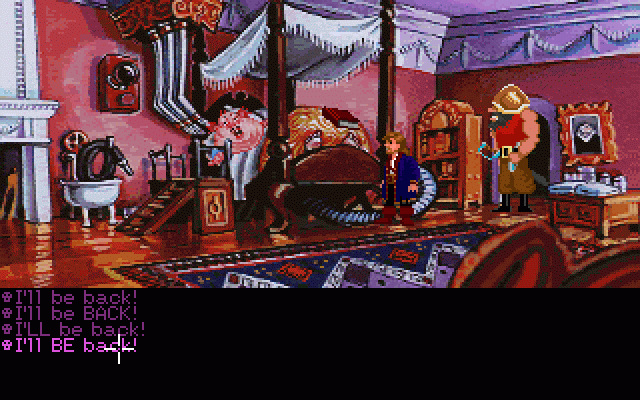I dislike choices with too little information. Or ones that are worded in a misleading way.
Sometimes, when you’re reading a story, you’ll be thrown into this world that you barely know- sure, the author may know ever detail and intricacy of the world’s politics, or social structure, or what have you, but you, the reader, often have no clue from the get-go what the situation is- until you learn about it.
And while some situations are clear- say, you’re running for your life from someone who wants to kill you, and, for the heck of it, say you’re running with someone. Well, yes, if you ask me if I want to escape then my answer would obviously be ‘yes, I do!’ I may have no idea why I’m running, I may not yet know what (or who) I’m running from, I don’t even know who I’m running with, but the basic situation is clear enough that I know what’s most important in that moment. If you give me the choice to fight for my life or continue running, well, then that’s fine, I know I’m in danger, I know enough to get what is happening and I can act in a way that the character I’m reading as would.
But there are times when, instead of being asked for fight or flight- or something else suiting the amount of knowledge the reader has access to- you’re asked about your opinion of the person next to you, and wether or not you should trip them and let them be killed. Well, why would I? I don’t know them! Am I supposed to know them? Why would this character even be having these thoughts? Is this a viable option for them?
So say you chose not to, because you don’t know who this person is and killing a random stranger who seems to be escaping with you is… a little much for your very first choice in this world.
Then, once you get out, you find out that this character is a mass murderer who had also killed your family and is now free to wreak havoc among the innocent townspeople that had imprisoned the both of you. Now they’re going to burn down this town and frame you for their deeds because you decided to not let them be caught and tried for murder.
Well, now, that might have changed the player’s first decision a bit if they had known, wouldn’t it?
While that’s a bit of an extreme example, I think that a tamer, and much more common, example would be asking for the player’s side from the get-go in a war or battle of some kind- or, heck, even just a casual debate about some matter that later becomes important to the plot. Without any information- the player can’t exactly make an informed decision. It becomes a shrug and “I guess this one works” choice than an actual choice. And one that they run the risk of regretting later on, even though they didn’t have enough information to make the decision they would actually want beforehand.
Sometimes you can play with these, admittedly. But only if the story is supposed to play with these, if the main character themself is supposed to be clueless or misguided before coming to an ultimate, dramatic reveal that they were wrong all along. Or if choices are meant to be misguiding because they’re presented by a character who wants to misguide the protagonist to their own end-goals. But then it becomes different- it becomes purposeful, it serves a point.
Choices that lack information or are misguiding without a purpose, however?
Those irk me.


